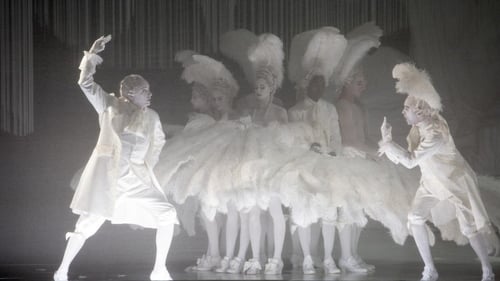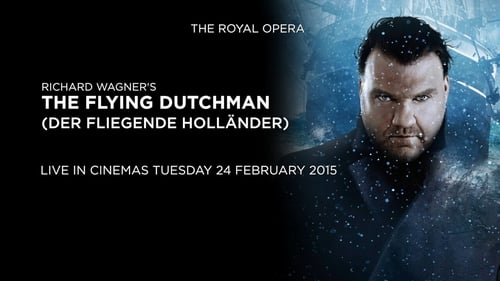
Orpheus sings his way to the underworld in pursuit of his wife Euridice, overcoming all obstacles by the power of his voice. He finds her but loses her again. How long do we grieve a loved one? How long do we hear their voice echoing after they have gone? In 1607, Claudio Monteverdi created his Orfeo, for the Carnival opening at the Court Theatre of Duke Vincenzo I in Mantua. Billed as a ‘musical fable’, here was a new form where characters are brought to life with poignant human feelings. Orfeo’s dramatic power gave birth to what we call opera today. As in the original performance in an intimate space in Mantua, Garsington’s summer 2022 production sees the singers and musicians very close; the instrumentalists are part of the action, onstage and visible.

The Prologue
Nothing is what it seems in an old English manor. When a new governess arrives, the children entrusted to her care seem to receive visits from the ghosts. What horrors occurred here before her arrival? Are the children innocent? Can we really trust what we see? Based on a ghost story by Henry James, Benjamin Britten’s The Turn of the Screw is a psychological thriller in chamber opera format.

Peter Quint
Louisa Muller makes her Garsington directing debut and we welcome back Richard Farnes (Falstaff, 2018) to conduct with Sophie Bevan (Don Giovanni, 2012) as the Governess and British tenor Ed Lyon making his Garsington debut as Quint. A young governess is sent to a remote country house to care for two children. She becomes increasingly disturbed by their behaviour but is under strict instruction never to bother their guardian in London. Are they innocent or wicked, possessed or just high-spirited?

A deer
Tristan, King Marke’s most loyal vassal, takes the Irish princess Isolde to Cornwall to be married off to his master. During the journey, Isolde uses a deadly poison in an attempt to extinguish the intense but unspoken love between her and Tristan that had arisen beforehand. Isolde’s confidante Brangäne, however, replaces the poison with a love potion. From that moment, Tristan and Isolde become inseparably linked. Their secret love is soon betrayed to King Marke by the jealous Melot, who also fatally wounds Tristan. He is brought to his island, longing for one final meeting with Isolde before he dies. When she eventually comes, he himself pulls open his wound and collapses in her arms. Isolde follows him, dying in the most sublime ecstasy.

Tamino
Die Zauberflöte is one of Mozart’s most famous works and one of the most beloved of the entire operatic repertoire. Generations of spectators have been fascinated by the melodies and adventures of Papageno, the Queen of the Night, Tamino, and Pamina, the ordeals faced by the young lovers, and the work’s inexhaustible allegorical depth. The director Romeo Castellucci has deliberately stepped back from the narrative dimension of the opera in order to explore its raw emotion and its philosophical heart. For his part, the conductor Antonello Manacorda brings Mozart’s immortal music to life with the help of an outstanding cast that includes Sabine Devieilhe, one of today’s finest interpreters of the Queen of the Night.

Steersman
Tim Albery's Olivier-nominated production for The Royal Opera delves deep into the psychology of Wagner's cursed wanderer and his beloved Senta, detailing the monomania and uncompromising idealism that finally drives them apart. Michael Levine's elemental single set is dominated by a rolling metal hull that represents the Dutchman's phantom ship, the poverty of Senta's home and the treacherous sea.

Hylas
After the destruction of Troy, the Trojan warrior Énée sets out on a journey to found a new dynasty. He meets Didon, Queen of Carthage, and falls in love. But will Énée's love for Didon prove stronger than his sense of duty? LES TROYENS ('The Trojans') is a tour de force of music that ranges from fiery military marches to intense choruses, passionate soliloquies – such as those of the prophetess Cassandre – and the lyrical love duets of Didon and Énée. It is Hector Berlioz's largest work and he wrote the libretto himself, drawing upon his intimate knowledge of Virgil's Aeneid. To the composer's disappointment, LES TROYENS was only performed once in full during his lifetime and was often presented in shortened form during the 20th century. The Royal Opera's production provides a rare chance to see this epic work in its entirety. David McVicar's staging is on an enormous scale, assembling one of the largest casts ever seen at Covent Garden.

Jonathan Kent's spectacular production of Purcell's huge semi-opera is joyous, imaginative and witty. Glyndebourne, with its intimate auditorium, provides the perfect setting for the drama which is partly spoken and partly sun. Based on an adaptation of Shakespeare's A Midsummer Night's Dream,

Hippolyte
In Glyndebournes first-ever staging of a opera by Rameau, director Jonathan Kent presents a production which, in his own words, strives to appeal to every sense and show audiences how engrossing and musically ravishing French Baroque opera can be. Rameaus inventive take on Racines great tragedy Phèdre is brought to life by Paul Browns colourful and elegant designs and Ashley Pages playful choreography. Ed Lyon and Christiane Karg give captivating performances as the titular young lovers, while Sarah Connolly, making a welcome return to Glyndebourne, invests Phaedra with both grandeur and a desperately human vulnerability (The Independent). Leading exponent of early music William Christie sets an exhilarating pace, galvanising the Orchestra of the Age of Enlightenment to playing of tremendous panache (The DailyTelegraph).








